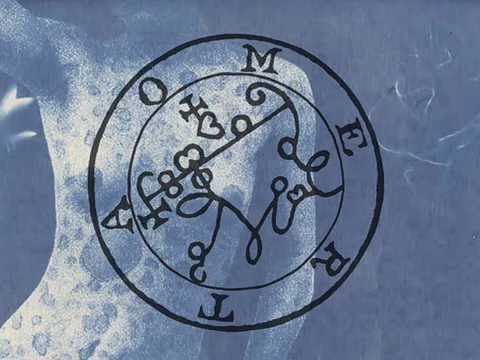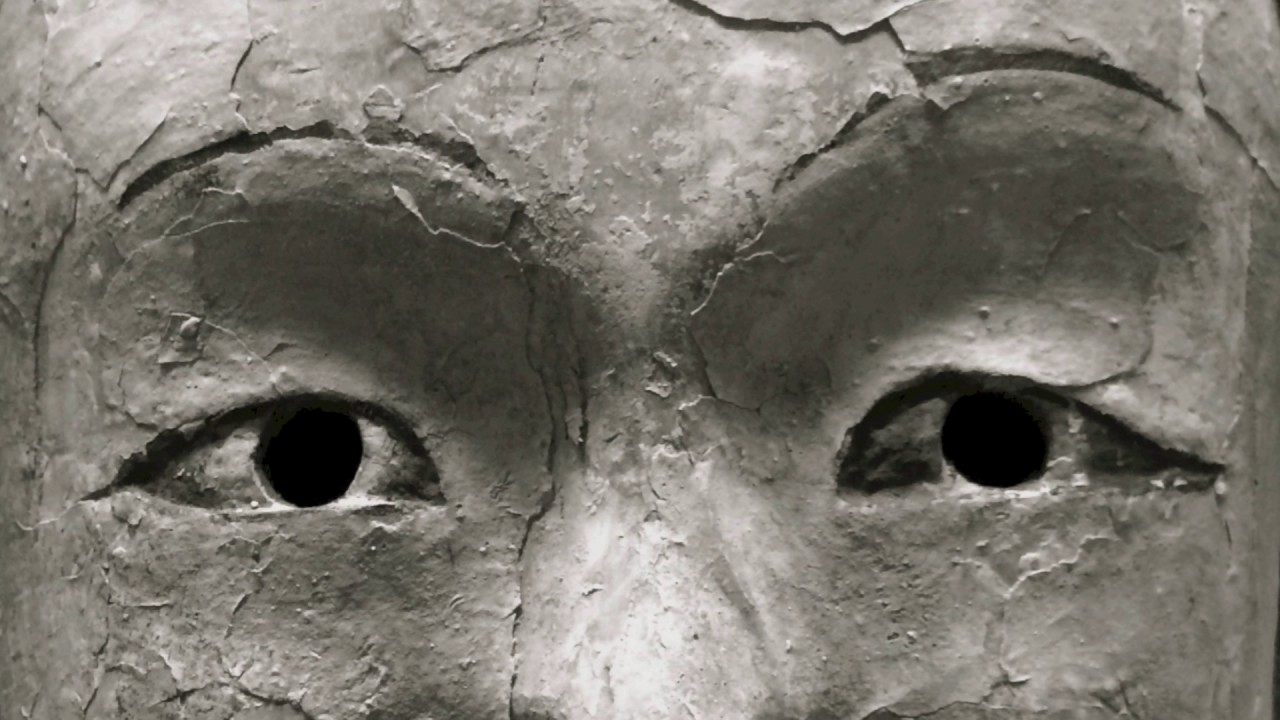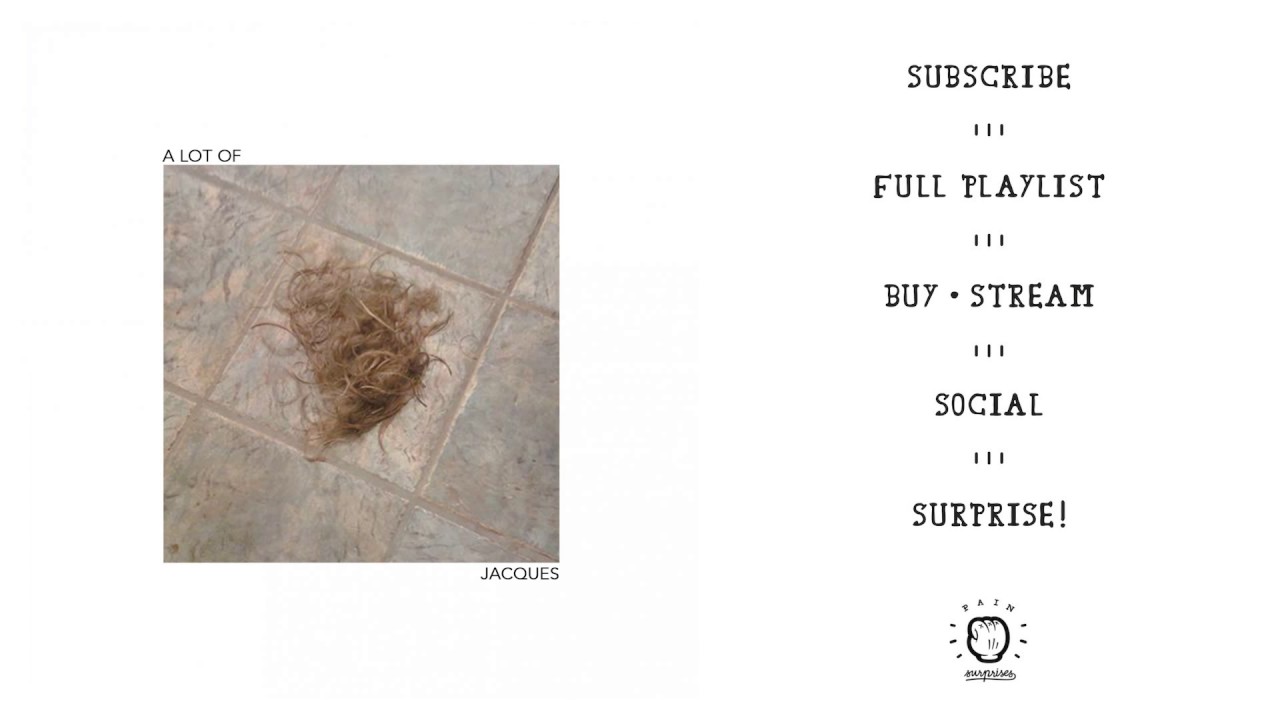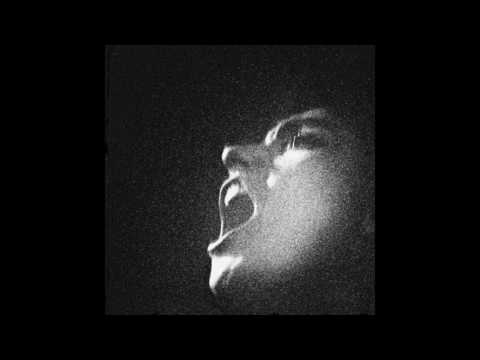Duo PuechGourdon – (S/T)
(La Nòvia)
&
La Barracande – (S/T)
(La Nòvia/Becoq Records)
&
Omertà – (S/T)
(Standard In-Fi)
&
Eloïse Decazes & Eric Chenaux – La Bride
(Three:Four)
Three albums (four actually, since the credit above for La Baracande could apply to two releases from them this year) with no titles to kick things off, and they’re all snapshots of an extended family that is doing so much at the moment to enrich the French musical landscape.
La Nòvia is a collective of musicians spanning central and southern French regions including Auvergne, Rhône-Alpes and Limousin, with a self-appointed mission to refresh French folk music and the instruments associated with it, irrigating traditional songs via experimental channels and the lessons of minimalism. Theirs is the opposite of some kind of terroir approach, a preserving in aspic of regional styles, in spite of the fact they draw on repertoires accumulated by 20th-century collectors. Their use of drone, exemplified by the ever-changing same of Yann Gourdon’s hurdy gurdy (vielle à roue) , and repetition taps into – and, to a degree, rewrites – a secret history of collective zoning in/out, so that listening to Duo PuechGourdon (or Toad, Faune, Jericho or any of the other La Nòvia duo or trio configurations for that matter), you might at times imagine yourself locked into the vibrations for hours, outdoors and out of your gourd, circa 1800.
Jacques Puech plays the cabrette (“little goat”), an Auvergnat version of the bagpipes, and also lends his voice to this latest collaboration with Gourdon, and both contribute “feet”, which is an indication of the danceable tempo of most of the material, although ‘Habitants de toute âge is more of a slow stomp, while the highlight is the fizzing 11-minute medley beginning with ‘Bourrée de Champagnac’ A bourrée is a double-time dance also originating in Auvergne.
La Barracande are Gourdon, Basile Brémaud, Pierre-Vincent Fortunier and Guilhem Lacroux. The latter contributes guitar and lap steel and there are violins, bagpipes and Brémaud’s voice in the mix. It’s a more obviously hybrid and tempestuous sound, and times they can have a rockier swagger, although ‘L’amour d’un garçon’ on the January release sparkles sunrays piercing grey cloud, while the March album consists of two slow-burners, built on drones that sound like deep fog horn blasts stretched out eternally.
Omertà, on their first album, may be more like second cousins in musical terms but there’s a crossover in personnel and labels. Florence Giroud, artist and Omertà’s driving force, met Jérémie Sauvage and Mathieu Tilly – part of the cast of musicians she assembled for this album and founders of the Standard In-Fi label – at the Êcole des Beaux-Arts de Valence while they were already members of the group France with Gourdon. Giroud’s approach advertises its conceptual nature to a greater extent than the La Novià groups, with the recording being part of an ongoing projects spanning various disciplines called ‘l’Opera XXS’, while the lyrics (delivered as spoken word) were taken as required from longer texts written by a writer friend in response to her prompts, and with the island of Corsica as a central inspiration.
If the whole album sounded like ‘La Voix de L’Araignée’ – a strange tale of metamorphosis underpinned by discreetly post-rocky guitar-and-bass interplay and wisps of synth – it would already be lovely. But its world of waking dreams and early morning clarity also finds space for dub-wise approaches in a style similar to Peaking Lights (‘Cock Tails’), while the title of ‘Devenir Liquide’ would be equally appropriate to describe the stunning ‘À L’Interieur’ wherein a luscious groove, with its reggae-derived bassline and metallic-sounding percussion, becomes ever more liquid as the track progresses. It’s a beautifully crafted debut.
Back to reinterpretations and revisions of traditional material, and the duo of Eloïse Decazes (Arlt, Dephine Dora) and Canadian experimental singer songwriter Eric Chenaux return for more unconventional takes on centuries-old ballads. Ripe as the words are with thwarted passion, untimely death and, er, horses, there’s zero need to ramp up the drama further and Decazes and Chenaux treat the songs as smeared and sun-bleached tableaux, mostly letting the strange or disturbing details speak for themselves – Chenaux sounds an only ever-so-slightly discordant note in ‘Le Deuil D’Amour’ at the point where Decazes sings “ta mignonne s’en va mourir” – “you’re sweetheart is dying”. Decazes’s tone encompasses sympathy, poise and dreamy detachment, while Chenaux combines folky filigree and wah-pedal squelch and squall to provide a fertile bed.
Group Doueh & Cheveu – Dakhla Sahara Session
(Born Bad)
Group Doueh are a band based in Dakhla, Western Sahara, and the blistering guitar work of leader Baamir Selmou was picked up on by Sublime Frequencies for their Guitar Music From The Western Sahara release. French post/punk/art rockers Cheveu, whose last album was called Bum, would be hard to categorise as sublime but they are awkward, angular, beautifully baffling and unruly (and feature among their members Olivier Demeaux, also of Accident Du Travail and Heimat). These kinds of collaborations are becoming more common but this still feels like an unlikely hook-up, which only makes the results of the ten or so days spent recording in Dakhla even more glorious. Also, aside from ‘Skit 1′, the album takes a rather different approach to the Sublime Frequencies audio reportage style. It’s a full-bodied, full-blooded melding of both bands’ worlds, with ‘Bord De Mer’ and ‘Tout Droit’ roaring out of the blocks, all chunky riffs, chants, cascading keyboards and propulsive rhythms. And even when you think you’ve got the album sussed, it delivers a loveable hip-hop flavoured pop gem like ‘Ach Had Lak Ya Khay’. Dynamite.
La Terre Tremble!!! – Fauxbourdon
(Murailles Music)
This band just keeps getting better. Several years ago, Paul Loiseau from the group told me “We’ve never aimed specifically to deconstruct or sabotage our music, we’ve never consciously tried to create knots, ruptures, dislocation or difficulty.” Over three albums, from ‘Travail’ to ‘Salvage Blues’ and now ‘Fauxbourdon’, the trio have progressed towards the state they find themselves in now where all their harmonic, structural and textural explorations feel fully digested and incorporated into the cellular structure of their songs. Ideas feel like they’re sprouting from within rather than being spliced together.
Despite the fact that this is their most focused album, La Terre Tremble!!! haven’t lost any of their ability to surprise either – relatively calm opener ‘Henri & I’ (which still manages to be quite creepy) doesn’t prepare you for the scintillating, progressive machine funk and camera-shutter clatter of ‘The Life Within’ or ‘Ringroad Continiuum’s’ pulse-quickening, noir-ish intensity. And their approach to chords and pop harmony remains pretty unique – you can identify some Floyd in there, the Lennon of ‘Glass Onion’ and ‘Hey Bulldog’, This Heat. But saying that is pretty much to acknowledge that at this present time they’re out on their own, and absolutely flying.
NLF3 – Waves Of Black And White
(Prohibited)
If their previous album, Pink Renaissance was NLF3 at their most plump and lustrous, Waves Of Black And White sees the trio of brothers Fabrice and Nicolas Laureau and drummer Mitch Pires return with something deliberately rough-hewn and grainy, like it was shot on 8mm film rather than in digital. The film analogy is reasonably appropriate as, like their previous live score for Eisenstein’s unfinished ỊQue viva Mexico!, a good chunk of the music here is apparently drawn from a new soundtrack for Paul Wegener’s silent horror The Golem. That said, and despite including tracks called ‘Look At Their Eyes’ and ‘Ghosts!’ and the hints of menace in the intro to ‘Aelita Stones’, there’s little here to inspire fear. Most of the time, the NLF3 of Waves Of Black And White sound spiritually appeased and comfortable in their own clothes, as testified to by moments like the virtually drumless section, combined with wind sounds and analogue hiss, that comprises the outro to ‘Fields’. The cover image, a black and white shot of sea-water foaming onto sand and rocks, could have been just an overly literal take on the album title but ultimately provides the best encapsulation of the feel NLF3 have found this time round – think contemplation and revivification, but also the grit and tang of sand and salty air.
Jacques – A Lot of Jacques
(Pain Surprises)
Some may have encountered Jacques via his poppy ‘Dans La Radio’, a conceptual jape about hearing one’s own voice on the radio for the first time that came off by dint of actually getting played on the radio (including BBC 6 Music over here). You may also have seen photos of his distinctive layman’s tonsure. A Lot Of Jacques represents another facet of Jacques, though – the one who played a sweaty three-hour live sampling session, using kitchen utensils and other accoutrements, at Total Refreshment Centre with Roscius last year and makes stuff that sounds like knobbly-kneed versions of Matthew Herbert tracks. The session that was edited down and rush-released as A Lot Of Jacques was another non-stop stint, this time eight-hours of improvisation broadcast on Facebook Live from The Lot Radio in New York.
As you’d hope, tracks tend to continuously evolve rather than shuffle themes around, and odd sounds jut out all over the place, but the pleasing scrappiness (and Jacques’ I suppose deliberately listless voice, which supplies moans on this album) is deceptive. Though subsequent editing will have helped, there’s a lot of craft in the moment as well, not least in longest cut, ‘Bushwack On The Dancefloor’, which retains a coherent identity over 11 minutes even after moving on from an extremely catchy, even cute, bassline.
Mondkopf – They Fall But You Don’t
(In Paradisum)
&
Oiseaux-Tempête – AL-‘AN! (And your night is your shadow — a fairy-tale piece of land to make our dreams)
(Sub Rosa)
&
Foudre! – Earth
(Gizeh Records)
Another family of collaborators – Mondkopf (Paul Régimbeau) is more or less prominent on all three of these and multi-instrumentalist Frédéric D Oberland is a member of both Oiseaux-Tempête and Foudre! Mondkopf’s latest, after a period away from releasing music under his own name but doing anything but sitting on his hands – there’s been the Autrenoir audio-visual project, collaborations with Charlemagne Palestine, the grindcore-inspired Extreme Precautions and noise supergroup Violent Magic Orchestra – has released They Fall But You Don’t, a suite of six tracks called ‘Vivere’ (Pts 1, 2 etc until the ‘Finale’) that comprise some of this least grandiose work to date. The synths still have an epic sweep, but it’s a kind of intimate, low-key epic, an inner journey.
Oiseaux-Tempête’s AL-‘AN – to give it part of its full title – is a journey on another scale altogether, recorded between Beirut and France and featuring a cast of Lebanese/Arabic improvisers like Tamer Abu Ghazaleh and Charbel Harber as well as the The Ex’s GW Sok delivering ‘narration’ on the gargantuan ‘Through The Speech Of Stars’. It’s weighty material, musically and thematically, a search for common humanity amid the embers and rubble of civilisations. And it works partly because in the space around and behind several vast, crumbling monuments there’s room for a multiplicity of human voices, sung or spoken, recorded street bustle and low-key improvisation that provide a more detailed backdrop and quieter backstreets to explore.
Foudre! Is “drone quartet” Oberland, Régimbeau, and Romain Barbot and Grégory Buffier, who comprise the duo Saåad, with contributions from Christine Ott on ondes martenot, and Earth is their soundtrack to an experimental film of the same name by Singaporean artist Ho Tzu Nyen (the album documents a continuous live performance, confirmed by the applause at the end). As the title suggests, we’ve moved on to something even larger scale here. If on AL-‘AN there are still cultures, and hope, to speak of, Nyen’s film apparently (I can’t claim to have seen it) represents the very end of civilisation and the remaining 50 humans on earth. And yet Earth is majestic and luxuriantly layered rather than maudlin or horror-struck. Given the tawdriness of the present, surrendering to the end and rejoining the cosmic soup can certainly feel like one way of salvaging beauty.
Rockfort Quietus Mix 7
Group Doueh & Cheveu – ‘Tout Droit’ (Born Bad)
Oiseaux-Tempête – ‘The Offering’ (Sub Rosa)
NLF3 – ‘Look At Their Eyes’
La Terre Tremble!!! – ‘The Life Within’ (Murailles)
Sida – ‘Le Crève’ (Population/Et Mon Cul C’est Du Tofu/Le Turc Mecanique)
Duo PuechGourdon – ‘Tout Le Monde Me Reproche/La Justina’ (La Nòvia)
Omertà – ‘Curagiù Un Ti Piantà/Devenir Liquide’ (Standard In-Fi)
Lo-Shi – ‘Le Pistolet D’Os’ (Call And Response)
EDH – ‘SOS Spring’ (Lentonia)
Scorpion Violente – ‘The Stalker’ (Bruit Direct)
Evil Grimace – ‘Bim Bim’ (Casual Gabberz)
Moku John – ‘Drop’ (Boukan)
Olivier Lété – ‘Silent-Bloc’ (Discobole)
Karaocake – ‘Here And Now’ (Objet Disque)
Eye – ‘Mécanique Calypso’ (Waving Hands)
Eloïse Decazes & Eric Chenaux – ‘L’Amante Du Dauphin’ (Three:Four)
Benjamin Schoos – ‘Une Fille En Or’ (Freaksville)






